After a long, hard week you may be reaching for a nice, cold beer or a glass of wine. Sure, an alcoholic drink can take the edge off and lower your stress for a bit. However, it could increase your appetite and make healthy eating very hard to do. A recent study shows that this overeating caused by alcohol could be due to a gene that is activated by alcohol consumption.
 About alcohol
About alcohol
Alcohol has been enjoyed for thousands of years since about the 5th century AD. This type of drink comes in many forms and flavors, is a central nervous system depressant that can relax the mind and body upon consumption. It is absorbed quickly from the stomach and small intestine into the bloodstream. Drinking too much though can impair mobility and cognition in the short-term. If consumed in excess over many years can increase risk of liver disease.
Ethanol is the active ingredient in alcoholic drinks. This substance is produced by the fermentation of yeast, sugar, and starches into alcohol. The way that ethanol affects you depends on a variety of factors including age, weight, how much you ate before drinking, and use of medications, to name a few. Regardless of these factors, the recommended maximum intake of alcohol for moderate consumption is 14 standard drinks a week for men and 7 standard drinks a week for women. One standard drink is equal to (ABV=alcohol by volume):
- 12 ounces beer (5% ABV)
- 8 ounces of malt liquor (7% ABV)
- 5 ounces of wine (12% ABV)
- 1.5 ounces of liquor (40% ABV)
Alcohol and appetite
Drinking alcohol often occurs in establishments which serve unhealthy fare as french fries, nachos, hot wings, and other fried foods. This type of food is thought to help those who are drinking to sober up. Research has found that all types of protein, fat, and carbohydrates can help you sober up after drinking, as long as you eat something.
So, what if you don’t feel like eating after drinking? A recent study has found that this is an unlikely outcome. This is because alcohol triggers a neuron signal found in both animals and humans that increases appetite. Starvation normally activates this neuron, known as Agrp, to increase a person’s motivation for eating. However, ethanol can also activate these neurons. This can explain why you may be extra hungry after a few drinks at the bar.
If this type of drinking and eating becomes a pattern, it could lead to weight gain and heart health issues over time. Therefore, it is important that if you do drink alcohol, that you do so in moderation and make sure you limit eating too many unhealthy foods while drinking.
Staying healthy during social hour
Since hunger seems to be inevitable after drinking, week after week of this behavior may impact your health in a not-so-healthy way. Therefore, use the following tips to have your drink and stay healthy too.
- Choose healthier food to munch on while drinking: Instead of fried foods, opt for a veggie plate with celery, carrots, and salad dressing. Or you could get a turkey burger without a bun topped with tons of vegetables like lettuce and tomato. Other options like baked chips and salsa, grilled chicken wings, or fruit salad are found at some bars and could be healthier drinking snack options.
- Drink lots of water: Drinking alcohol can dehydrate you since it reduces the activation of the hormone known as ADH or anti-diuretic hormone. When it does this, the kidneys do not reabsorb as much water, so you urinate more. Over time, this can cause you to become dehydrated. Water is needed for many aspects of health, so if you do drink alcohol, drink plenty of water with it.
- Find other ways to relax: If drinking wine or beer is a way for you to relax, perhaps try not to do it so much. Find other ways to relax such as walking, reading, yoga, meditation, or exercising, among other things. You could also take a supplement such as Elevia by Vita Sciences that increases your “feel-good” hormone serotonin to help you relax. Elevia contains ingredients such as GABA and 5-htp to help calm your body and mind.
-written by Staci Gulbin, MS, MEd, RD, LDN
References:
Cains, S., Blomeley, C., Kollo, M., Racz, R., and Burdakov, D. (2017) “Agrp neuron activity is required for alcohol-induced overeating.” Nature Communications, 8:14014.
Centers for Disease Control and Prevention (March 29, 2018) “Alcohol and Public Health: Frequently Asked Questions.”
Freudenrich, Ph.D., C. (accessed August 21, 2018) “How Alcohol Works.” How Stuff Works online.
Gowin, Ph.D., J. (September 15, 2013) “What’s the Best Meal to Sober up after drinking?” Psychology Today online.
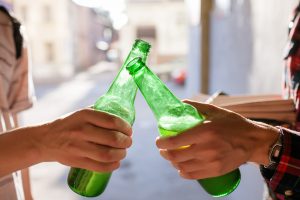 It’s Friday night and the weekend is just beginning. After a long week of work, you may be thinking about that glass of wine or pint of beer to help you relax. In moderation, there is nothing wrong with a few drinks on the weekend. However, a recent study has found that drinking more than the suggested amount each week can shorten your life.
It’s Friday night and the weekend is just beginning. After a long week of work, you may be thinking about that glass of wine or pint of beer to help you relax. In moderation, there is nothing wrong with a few drinks on the weekend. However, a recent study has found that drinking more than the suggested amount each week can shorten your life.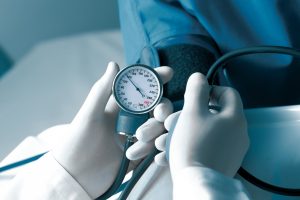 Nearly half of all Americans have high blood pressure, or hypertension. Having hypertension can put you at increased risk for heart disease and stroke, which are two of the top five leading causes of death in the United States. Therefore, it is important that if you have high blood pressure that you should work to be more heart healthy to prevent chronic disease. This usually includes eating a heart healthy diet and exercising. However, a recent survey shows that exercise is the last thing people want to do to try and lower their blood pressure.
Nearly half of all Americans have high blood pressure, or hypertension. Having hypertension can put you at increased risk for heart disease and stroke, which are two of the top five leading causes of death in the United States. Therefore, it is important that if you have high blood pressure that you should work to be more heart healthy to prevent chronic disease. This usually includes eating a heart healthy diet and exercising. However, a recent survey shows that exercise is the last thing people want to do to try and lower their blood pressure.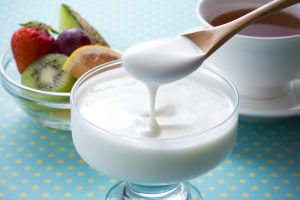 Do you get cramps in your side after eating certain foods? Do you feel bloated, gassy, or suffer from constipation? If so, then you may have an imbalance in your gut bacteria. Probiotics may be able to help you improve your digestive health.
Do you get cramps in your side after eating certain foods? Do you feel bloated, gassy, or suffer from constipation? If so, then you may have an imbalance in your gut bacteria. Probiotics may be able to help you improve your digestive health.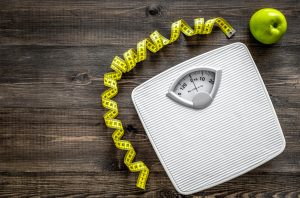 With the summer months approaching and weather warming, weight loss may be on your mind. With every click of the remote, there are commercials advertising weight loss plans, exercise equipment, and fat burning supplements claiming to help you manage your weight. However, a recent study has shown that regular eating versus dieting may be the answer to long term weight loss and management.
With the summer months approaching and weather warming, weight loss may be on your mind. With every click of the remote, there are commercials advertising weight loss plans, exercise equipment, and fat burning supplements claiming to help you manage your weight. However, a recent study has shown that regular eating versus dieting may be the answer to long term weight loss and management. When you have diabetes and are overweight, your doctor may say that a small amount of weight loss could help control your condition. However, if you have to take insulin to control your blood glucose levels, weight loss can be very difficult. Therefore, it is encouraging to report that a new diabetes medicine may help those with diabetes who are obese to lose weight.
When you have diabetes and are overweight, your doctor may say that a small amount of weight loss could help control your condition. However, if you have to take insulin to control your blood glucose levels, weight loss can be very difficult. Therefore, it is encouraging to report that a new diabetes medicine may help those with diabetes who are obese to lose weight.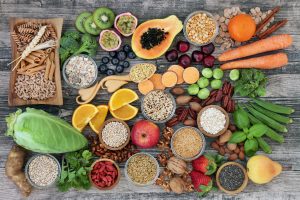 Eat your veggies, they say. Whether you are trying to lose weight, improve your blood pressure, or just simply trying to live well, you may be told to eat more fiber in your diet. Fiber is not only good for managing weight or keeping your heart healthy though. A recent study has found that more fiber in your diet may actually help improve the health of those with type 2 diabetes.
Eat your veggies, they say. Whether you are trying to lose weight, improve your blood pressure, or just simply trying to live well, you may be told to eat more fiber in your diet. Fiber is not only good for managing weight or keeping your heart healthy though. A recent study has found that more fiber in your diet may actually help improve the health of those with type 2 diabetes.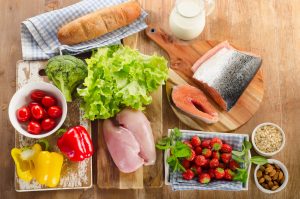 Like millions of other people, you may be hoping to lose some weight in this new year. However, the confusing part may be what eating plan, or shall I say “diet,” should you choose to follow? There is so much information in the media today making all sorts of weight loss claims. They may all seem promising, but not all may provide you the nutrients you need to succeed long-term. However, a recent report found that the DASH diet may be the answer to get you to your weight loss goal.
Like millions of other people, you may be hoping to lose some weight in this new year. However, the confusing part may be what eating plan, or shall I say “diet,” should you choose to follow? There is so much information in the media today making all sorts of weight loss claims. They may all seem promising, but not all may provide you the nutrients you need to succeed long-term. However, a recent report found that the DASH diet may be the answer to get you to your weight loss goal.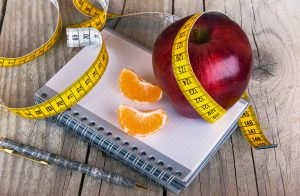 If you have ever tried to lose weight, then you probably have been told to track your calories. Most calorie trackers focus on keeping track of the calories you consume through food. On the other hand, fitness trackers or workout machines may track how many calories you burn during the day. However, is there more to the story of weight loss, or is calories in and calories out the only key to success? A recent report by health experts reveal that there may be more than simple math in the weight loss equation.
If you have ever tried to lose weight, then you probably have been told to track your calories. Most calorie trackers focus on keeping track of the calories you consume through food. On the other hand, fitness trackers or workout machines may track how many calories you burn during the day. However, is there more to the story of weight loss, or is calories in and calories out the only key to success? A recent report by health experts reveal that there may be more than simple math in the weight loss equation. According to the National Institutes of Health, the average American can live an average of 79 years. However, did you know that a few small lifestyle changes could add years to your life? It was found that for every few pounds you lose you could be adding years to your life.
According to the National Institutes of Health, the average American can live an average of 79 years. However, did you know that a few small lifestyle changes could add years to your life? It was found that for every few pounds you lose you could be adding years to your life.